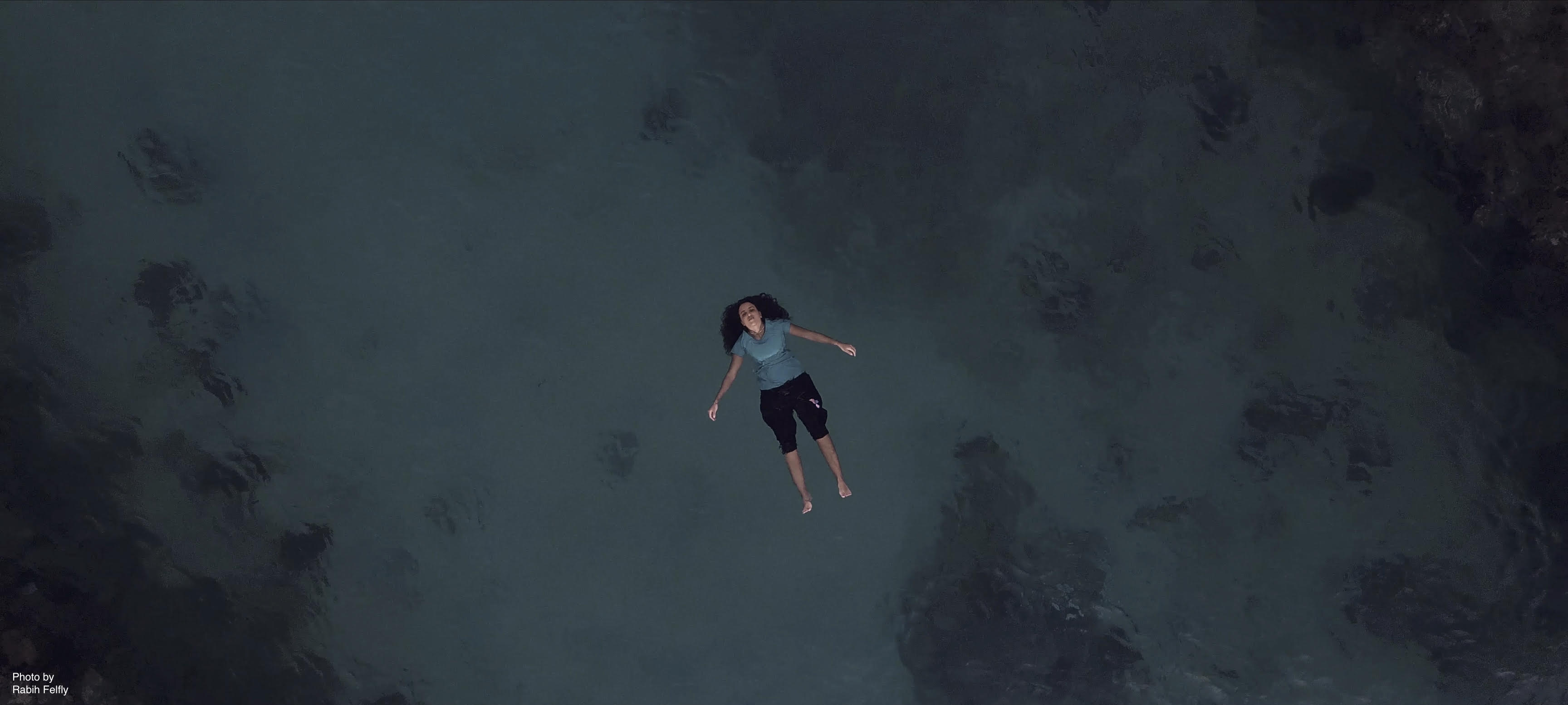
Tribeca 2024 Short Film Review “Kum-Kum”
WATCH THE TRAILER HERE
First, the Recap:
Crushing distress. Life has its hardships, we all know and, albeit reluctantly, accept this. But, for the most part (not at all exclusively, mind you) those aspects of our lives that involve difficulty can be overcome and moved on from with a fair amount of overall expediency. Then, however, there are those truly shocking, utterly unexpected instances where time feels like it will never mend us, never allow us to be the same ever again, and only appear to place us in nothing but a fractured, distraught mindset with no way to sense, much less see, an end to it. Duna (Nada Basaad) has just suffered such an explicitly impactful circumstance in the loss of a best friend, Salwa (Dana Al Kadhi), that has left her destroyed and feeling things on a level she’s never dealt with. With nothing that seems to assuage the pain, will she be able to find the inner redemption and freedom from contrition that now plagues her?
Next, my Mind:
This critic must start here by being transparent in acknowledging just how much this film resonated with me on a deeply personal level via having to honestly state I DO directly KNOW the gut-wrenching anguish and seemingly unabating pain (even after ultimate acceptance of the given circumstance occurs–eventually) that losing a best friend causes, as I lost mine back in June of 2022, unexpectedly, no warning, no indications medically or otherwise. It was simply over. That magnitude of grief and overwhelming sense of sudden isolation on top of it is precisely what gets explored through writer/director/producer/cinematographer/editor Dur Ahmed Jamjoom‘s evocatively stirring 15-minute short film which is selected to be part of the 2024 Tribeca Film Festival, with screenings on Sunday June 9th at 3:15 pm, Monday June 10th at 6:15 pm, and Saturday June 15th at 11:45 am, the first and last at the AMC 19th St. East 6 with Monday’s showing at Village East by Angelika. Along with producer Lama Jarkas and executive producer Rowaidah Muhammad, this is that unflinchingly human film that strikes you–HARD.
And it is the weighty impact it SHOULD have, being based on real events experienced by Jamjoom herself back in 2012, through the narrative’s course that sees a young group of friends relishing time at the beach, in the sun, celebrating just BEING them that becomes a jarring, waking nightmare when an incident befalls one of them, with the one who feels responsibility left enduring the shock, ramifications, and chaotic emotions she doesn’t know how to process in its aftermath. Nothing CAN prepare someone for encountering this kind of loss, but it’s only made that much more devastating when the situation surrounding it might actually have HAD some form of initial warning signs that no one took completely seriously or just couldn’t believe would ever happen. Not at ALL in itself stating this was the case in the film director’s real life back in 2012, but how this FILM showcases even the possibility of a preventable scenario is what, at minimum, adds to the project’s unapologetic, blunt force punch that’s experienced when watching. It’s genuinely haunting.
From the point of tragedy, the film launches ahead unrelentingly, but still with such a genuine soul and spirit even IN the agonizing atmosphere that forms the primary focus, in how it then chooses to follow one person’s intensely mournful, fervently desperate path through her grief to a necessary stage of not just letting go and finding absolution within, but also rediscovering the ability to allow someone else precious and close to her just be themselves without carrying the innate fears that they too might be lost. The context in which the story navigates this is simply a noteworthy product born out of direct experience and adept writing that so astutely brings out the requisite aura of heartbreaking struggle paired WITH the aforementioned yearning for peace of mind and release from mostly self-imposed obligation and guilt. The finale puts this into perspective to a profoundly moving and totally apropos degree of accessibility and believability that undeniably cements the narrative’s core purposes into your mind.
Once more, refined understatement gets intermixed with potently ardent energy and emotive force through Basaad’s performance here as Duna, a young girl whose life gets abruptly and tragically upended when an occurrence takes away her best friend and the ensuing trauma of the event immerses her in a mindset and reality she’s never had to handle. As it all sinks into her being more and more, Duna’s initial point to be isolated from everything and everyone else around her starts to take its toll, even as she still attempts to move on and all those around her who genuinely care for her likewise try their best to keep her from fading away. How Duna will then have to confront and overcome the actualities of her own sense of responsibility as well as a now overprotective view of things as it applies to others in her life culminates to a point of either complete entrapment of herself within–or an actual cathartic release from it all that could be the outlet for liberation she needs. This critic is endeared to actors whom I feel can embody this kind of tumultuous emotional intensity and do it a manner that is credible. Basaad accomplished that.
Primary supporting appearances are made first by Al Kadhi as Duna’ best friend Salwa whom the narrative is ultimately centered upon. The manner in which Salwa is portrayed–a vibrant, devout, and also cautiously reserved person–suits the story beautifully and, again, tragically. Al Kadhi infuses the character with that grounded credibility that lends itself so well to events through her performance here. Waad Shaat and Raneem Khalifa play Abeer and Jude, two girls and friends of Duna and Salwa who are also present when events take place that alter all their lives forever. Like Basaad and Al Kadhi, Shaat and Khalifa most certainly embody the age their characters represent, with all the playfully carefree, even mischievous, attitude that comes with being a teenager. Additional supporting appearances are made throughout the film by Duha Alsibaie, Huda Alhanafi, Dana Afandi, and Rama Kashmiri.
So, in total, “Kum-Kum” is a vividly significant, unequivocally poignant, dramatically formidable, and persuasively cautionary tale that makes us consider in an affecting way what it means to encounter the agony of grief, the ripple effect it causes, the imprisonment of heart and mind it can bring about, and the importance of reaching out rather than closing up so that what we require most can emerge–HEALING.
STAR RATING (out of 5):
As always, this is all for your consideration and comment. Until next time, thank you for reading!






